Bucharest dog cull plan divides Romanians
- Published
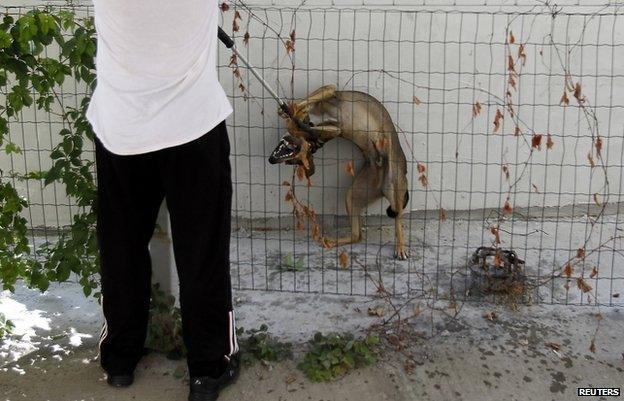
A municipal employee is seen here restraining a dog
It is almost impossible to walk the streets of Bucharest for more than five minutes and not encounter a stray dog.
According to official estimates there are 65,000 of them - one for every 30 residents of the Romanian capital.
But this situation is about to change, if the government gets its way. Or, if a growing number of alarmed international protesters get theirs, it will not.
The government wants the dogs rounded up and, if not claimed within two weeks, put down.
While this proposal has plenty of support in Romania, protests have rapidly spread around the world, with critics deploring the impending "massacre".
There have been demonstrations outside Romanian embassies in some European capitals, and celebrities like Brigitte Bardot and Pamela Anderson have made forceful representations against the law.
This outside interference has incensed supporters of the law, who say "animal lovers" - used partly as a term of abuse - are distorting the truth by, in some cases, disseminating pictures showing cruelty against stray dogs taken in other countries, while claiming to originate from Romania.
Stray dogs are nothing new for Bucharest or for Romania in general but the canine population has grown, especially since former communist dictator Nicolae Ceausescu ordered in the 1980s the demolition of vast areas of houses in Bucharest and other cities, and their replacement with concrete blocks of flats, forcing the owners to abandon their dogs.
Child's death
Attacks are frequent: in the first eight months of 2013, almost 10,000 people in Bucharest were treated for dog bites by the Matei Bals Institute for Infectious Diseases.
In some cases, stray dogs have killed people. One of the most infamous incidents resulted in the death of a Japanese tourist in Bucharest in 2006.
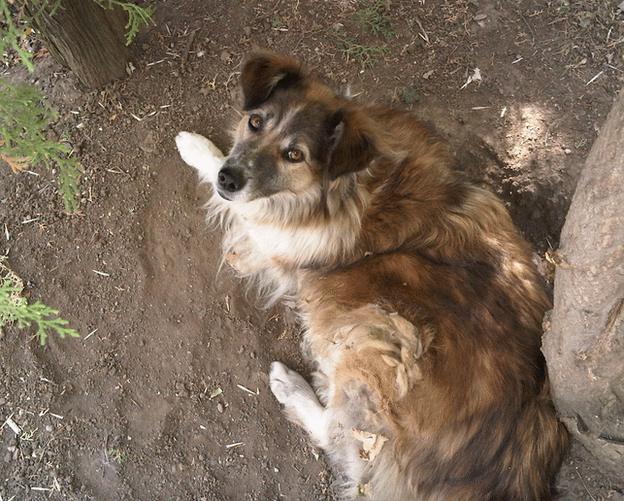
Dog-lovers argue for a sterilisation programme instead of a cull
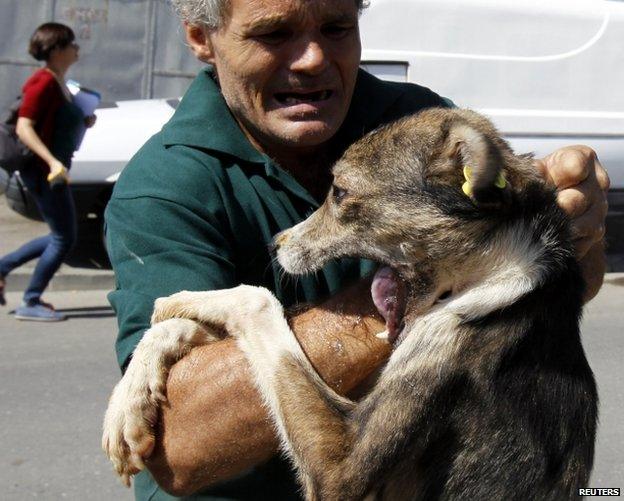
This stray dog was adopted
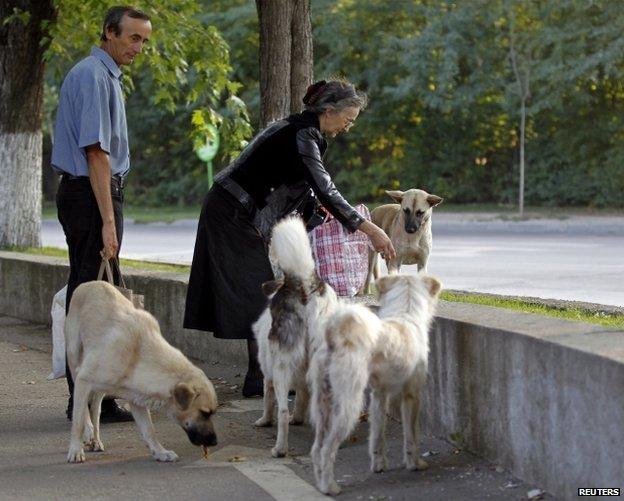
One problem is that some people feed stray dogs
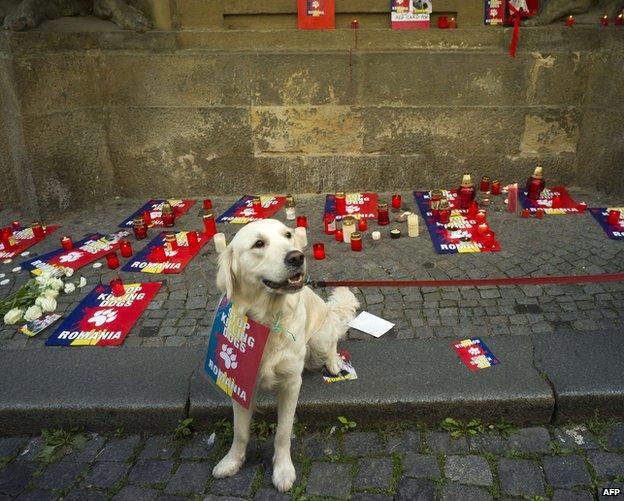
In Prague a protest against the new law was held outside the Romanian embassy
But the incident which led to an explosion of popular anger was the mauling to death of a four-year-old boy, Ionut Anghel, by a pack of stray dogs on a private plot in northern Bucharest, on 2 September.
"It took this tragedy to wake me up to the fact that there are dogs on the streets," says Nadine Apostolescu, a well-known singer and dog owner herself, who is the public face of the campaign to remove stray dogs.
"Now, after 20 years when nothing was done, I took to the streets as a mother and a citizen to protest against this situation."
Demonstrations followed and parliament quickly adopted a bill, dormant for more than three years, which provides for the destruction of captured stray dogs by "humane methods" as a last resort, after 14 working days.
It also introduces mandatory registration for dogs and harsher penalties for owners who abandon their animals.
But critics complain that, besides potentially triggering a massacre of stray dogs, the law will not solve the problem in the long term, as it does not tackle the issue of uncontrolled breeding.
"The likelihood is that only tame strays will be captured, as the authorities lack the resources to capture the most aggressive ones, which will continue to breed and the problem will only get worse," says Ovidiu Rosu, a vet with the animal charity Vier Pfoten (Four Paws).
He also points out that lots of Romanians are in the habit of feeding stray dogs, which is likely to encourage their continued survival.
Lethal injection
On both sides of the argument there is a consensus that stray dogs have no place on the streets.
Dog-lovers want a sterilisation programme instead, and more investment in dog shelters and adoption. These ideas have had only limited success in the past.
Language has become a key point of contention. Opponents object to the law's reference to "euthanasia", saying most stray dogs are healthy animals and this is not an act of mercy killing, but a "massacre".
Supporters liken the packs of stray dogs to a "plague of wild animals".
Opinion polls suggest supporters outnumber the opponents - by as much as 70% to 30%.
Bucharest's mayor, Sorin Oprescu, has promised that 80% of stray dogs will be removed within a year - half of these, apparently, by adoption.
He refused to elaborate on what method would be used to kill those dogs which are not adopted. A lethal injection seems most likely.
Whatever the outcome, in the end the question still lingers: if Romania has been unable to control its stray dog population for the past 20 years - be it through lack of political will or through corrupt diversion of funding - what is the guarantee that it will manage to do so in future, once the anger generated by the tragic death of an infant mauled by stray dogs starts to subside?
- Published9 September 2013
- Published18 September 2013